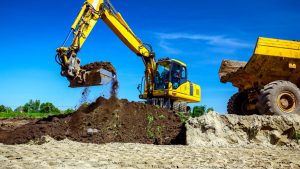While Canada’s construction industry seems to have adapted to the pandemic, the picture down south isn’t so simple.
Associated General Contractors (AGC) of America chief economist Ken Simonson detailed the initial and ongoing effects of the COVID-19 pandemic on the U.S. construction industry through an August workforce survey during an online session at the Procore Groundbreak virtual conference. He shared the stage with Procore senior director of business development Kris Lengieza.
Simonson said 60 per cent of those surveyed stated an upcoming project had been delayed or cancelled, up from 32 per cent in June 2020. Projects were also taking longer than anticipated and companies are having a hard time filling hourly craft positions, such as bricklayers and cement masons.
When lockdowns began in March 65,000 construction workers were out of work “but that was just a mere prelude to April when a million workers lost their jobs,” Simonson said.
The construction industry was able to access paycheque protection programs and rehire furloughed workers but by June the industry’s fortunes diverged.
Non-residential construction has stalled with numerous project cancellations, at the same time residential construction has grown by three to five per cent, Simonson said.
Homebuilding, additions and renovations are very strong, he added, and the outlook for the rest of 2020 is a focus on pandemic-related remodeling and emergency repair work.
There are some “positive niches” in non-residential construction including warehouse and data centre construction as well but vehicle manufacturing has tumbled and transportation projects such as airports rail and trucking are all in decline.
“This is the last hurrah for mass transit as ridership falls. I think we’ll see less investment in mass transit going forward,” Simonson said.
Other infrastructure will depend on the amount of advance or assured funding in place, and some state and local-level projects will be cancelled or postponed while other projects go forward but with cutbacks or delays.
“Without new work there will be contractor layoffs and firm closures will increase sharply,” Simonson said.
There are still challenges for the industry after the pandemic has run its course, he added.
“Slower population growth and a decline in immigration means slower demand growth for most of construction,” he said.
Simonson added the shift from retail to e-commerce, which was well underway before the pandemic, is likely to be permanent.
“There will be more specialized and online health care, but fewer hospitals and nursing homes. Demand for restaurants should revive sooner than hotels and other travel-related construction,” he said.
“It’s not clear yet if offices will decentralize or remain in less demand.”
Lengieza said using data to improve productivity could be a key to restoring competitiveness.
“Data is a golden opportunity. We have so much info that is being collected by workers building projects, but we haven’t put it to work for us,” he said.
Lengieza cautioned while the pandemic has negatively affected the construction industry, implementing advanced analytics can help companies get through the crisis.
“A global pandemic doesn’t mean we stop looking at data. It can continue to improve our businesses and that data informs where we should invest in projects, technology, where we should be going with employees. It’s data-driven decisions that separate us from our competition,” Lengieza said.
Using COVID-19 data Procore was able to measure in “almost real time” how the pandemic affected the industry.
“We could measure worker hours and shelter-in-place activity through worker logs entered into systems. We were taking a strong hit to the number of workers on projects early on, but also were able to graph the recovery,” he said.
Follow the author on Twitter @JOCFrey.











Granted everything came to a screeching halt for a few months, but now we are experiencing incredible growth and interest in residential building construction. People are expanding, improving, re-arranging, and upgrading their homes more so than usual. So I know if I was specializing in commercial work, I would seriously consider shifting gears into residential right now and ride this wave out. There is plenty of work to share, and it could be just what you need to survive the times. Good luck…well…actually…its not really luck that is needed, in as much as it is being aware & acting accordingly. Best wishes to everyone struggling to get by.
Albert Einstein said, “in the midst of every crisis, lies great opportunity.”